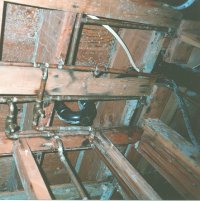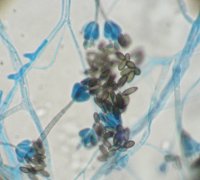Moisture is one of the key requirements for mold growth in homes. There are different types of mold. Some molds require relatively very low levels of available moisture for them to grow. These types of mold are referred to as xerophilic and are likely to be found in almost every home. The common xerophilic fungi belong to the genera Aspergillus, Penicillium and Wallemia. Some other molds require wet or highly damp prolonged conditions. These are referred to as hydrophilic (“water loving”) fungi and their presence in homes is an indication of moisture damage. Examples of indicators of moisture damage include Chaetomium, Stachybotrys and Fusarium.
Mold Growth Control
The best way to control mold growth is to eliminate moisture. Strategies to control mold growth involve:
- Reducing humidity. It’s recommended that relative humidity be maintained at or below 60%.
- Inspect the building regularly for signs of mold, moisture, leaks, or spills and take appropriate action
- Respond promptly when you see signs of moisture and/or mold, or when leaks or spills occur
- Reduce potential for condensation on cold surfaces such as windows, piping, exterior walls, roof, or floors by adding insulation
- Frequently clean floor, carpet, and remove dust on surfaces. This reduces the amount of spores that would otherwise start new mold growth when moisture becomes available.


